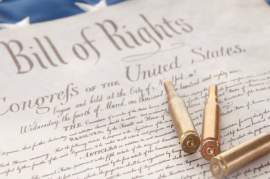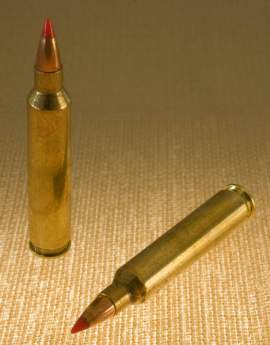
What Are The Gun Control Legislative Priorities

Coming from the perspective on instituting gun control policy, it is inherent that the restriction of firearms will be restricted in some form. The efficacy and constitutionality of gun control policy is the main concern and priority when enacting any kind of gun control legislation. The main purpose behind gun control is to reduce crime rates--particularly those that are of a violent nature and undertake the use firearms for crimes--with the mentality that the availability of firearms is directly related to crime rates themselves.
Though there is significant data and statistics supporting the claim, there are just as many that denounce it. However, gun control still remains relevant for the fact that legislation regarding firearms is already in place. Gun control policy exists at the federal, state, and local levels, all employing varying degrees of severity or strictness applied to the possession, purchase, or carrying of firearms.
The main purpose is to keep firearms from falling in to the hands of criminals, so as to prevent any further crime from occurring. This concept was first enacted by the the Gun Control Act of 1968, which provided for a set of laws restricting the the availability and acquisition of firearms by those who were not deemed qualified under law. Some of the firearms restricted any individual that met the following categories:
History of felony convictions, as well as certain misdemeanors
Fugitives from justice
Illegal aliens
Dishonorable discharge from the military and armed forces
Minors under the age of eighteen (depending on the type of firearm)
History of domestic violence
Have a pending restraining order
In placing these exceptions for individuals to acquire, posses, or carry handguns, gun control advocates assured that it would keep the guns out of criminals' hands or those who may be prone to deviant and dangerous behavior.
State legislature also applies further restrictions that vary from state to state, and are subject to be more explicit or strict than those of the federal government. In keeping true to adhering to the Second Amendment, the federal government allowed for the state governments to apply their own laws and regulations, as long as they did not infringe on federal statutes and remain constitutionally faithful to the provisions in the Second Amendment.
Another piece of legislation enacted with the purpose of further restricting the availability of guns to criminals the Brady Handgun Violence Act. This gun control policy called for five-day waiting period and a background check for all purchases or transfers of handguns.
The National Instant Criminal Background Check System would be instituted and headed by the Federal Bureau of Investigation, which would verify a prospective handgun purchaser to be eligible for the transfer and not meet any of the disqualifying criteria. Gun control advocates posed that if a criminal history must be evaluated before the purchase of a weapon at a licensed dealer, it would curb criminals from acquiring handguns.
In 2000, nearly 17 million background checks were conducted for the purchase of firearms. Nearly 700,000 of those attempted purchases were denied due to negative evidence as provided by the background check. Over 59% of the denials were due to the purchaser being convicted of felony charges, and about 12% were due to a history of domestic violence conviction or restraining order.
This information proves that the new legislation was effective in curbing the acquisition of firearms by criminals, at least to a certain extent. It is important to keep in mind that all of these purchases and background checks were submitted by authorized firearms dealers or the appropriate law enforcement agency as required by various state laws. This does not take in to consideration the possibility of criminals acquiring guns by illegal means, which realistically, is most likely how most criminals would go about getting a gun.
Certain gun control cases have been brought to court regarding the illegal transfer of firearms, such as Bryan v. United States in 1998, where Sillasse Bryan was found guilty of "willfully" dealing in firearms without a license. Bryan was acquiring firearms through other means because he could not purchase the weapons himself, and proceeded to sell them on the streets, presumably to individuals with a criminal past that would bar them from acquiring firearms legally.
Though the provision would find Bryan violation of federal statutes, it does not refute that criminals are in fact able to acquire firearms through other means. Though the laws are restrictive and the punishment severe, it has yet to be proven exactly how much gun control is effectively reducing crime. Because of the ambiguity of success of gun control policy at the different levels of government, gun rights activists often criticize and will vehemently deny that firearm laws can effectively decrease crime rates in the United States.
NEXT: What Is A Gun Holster




















